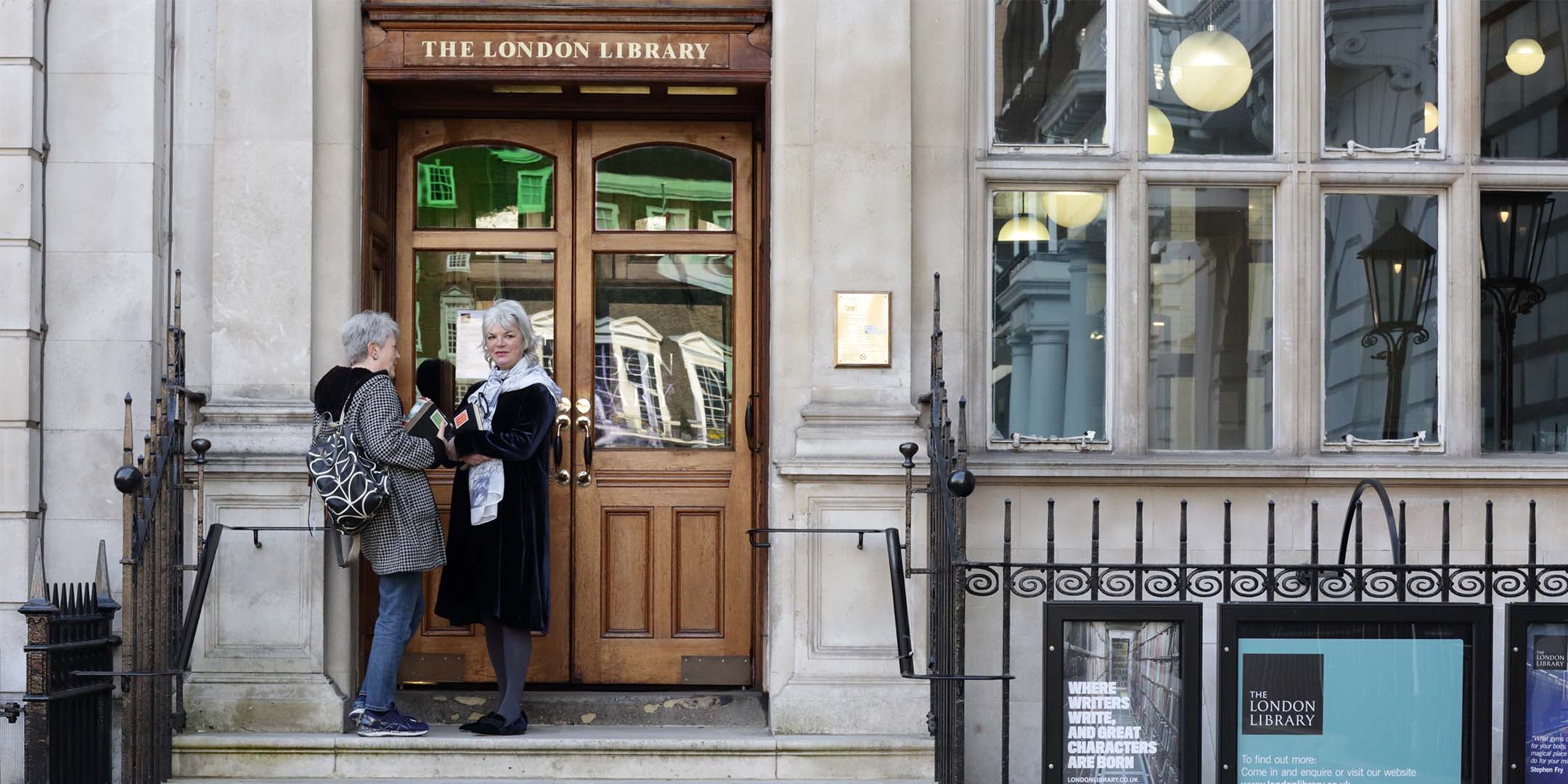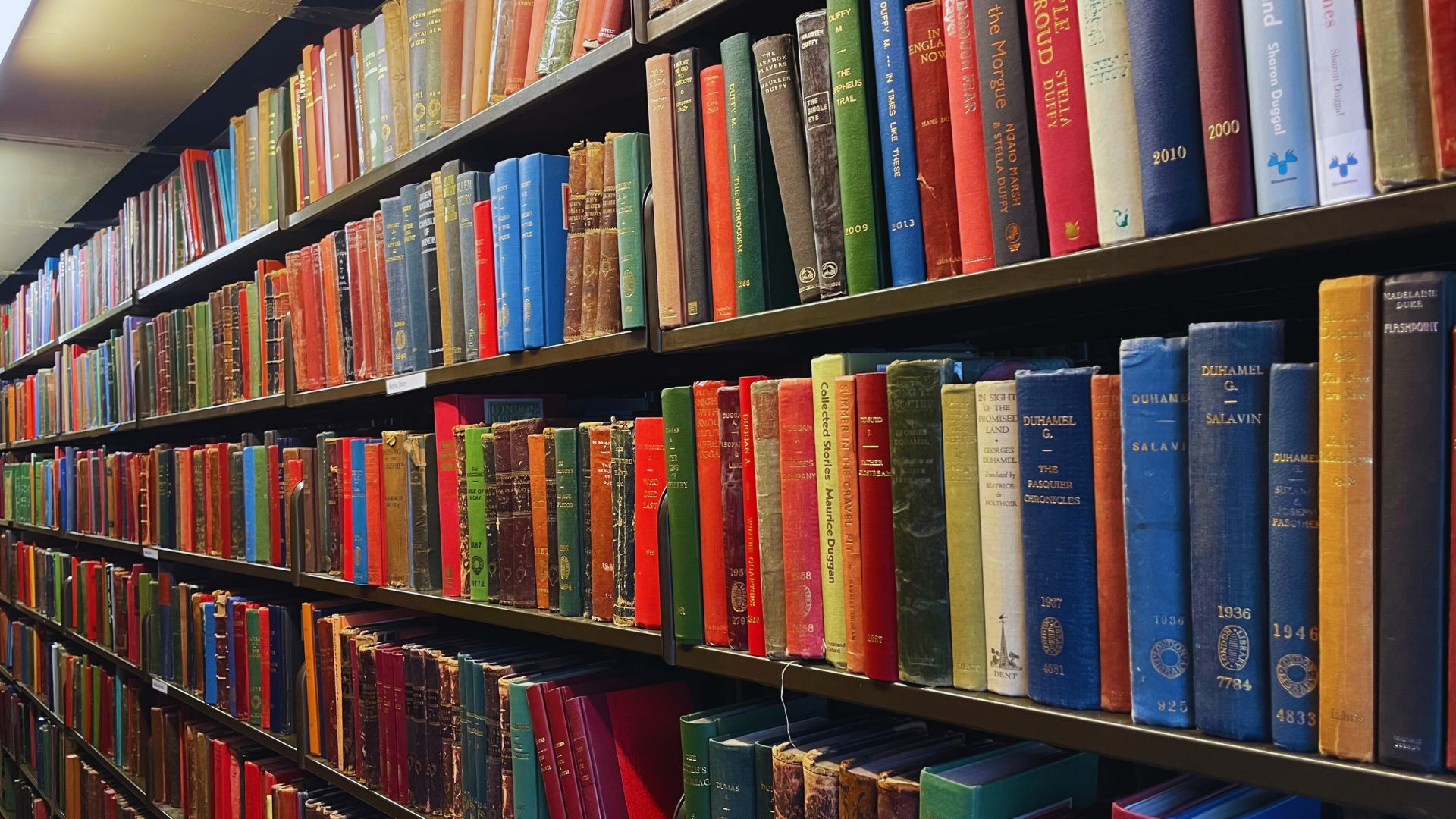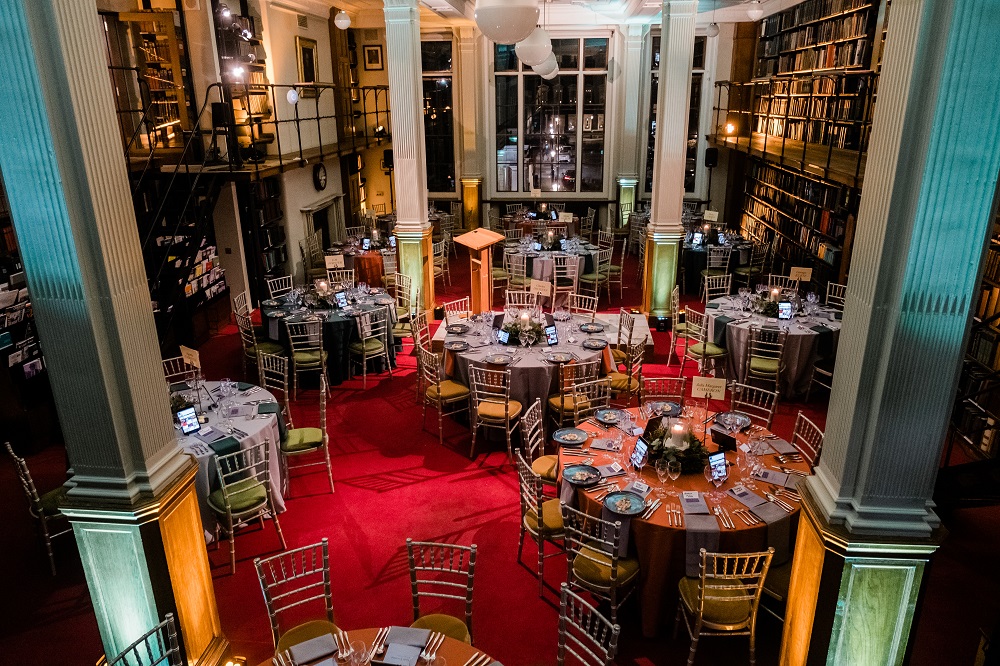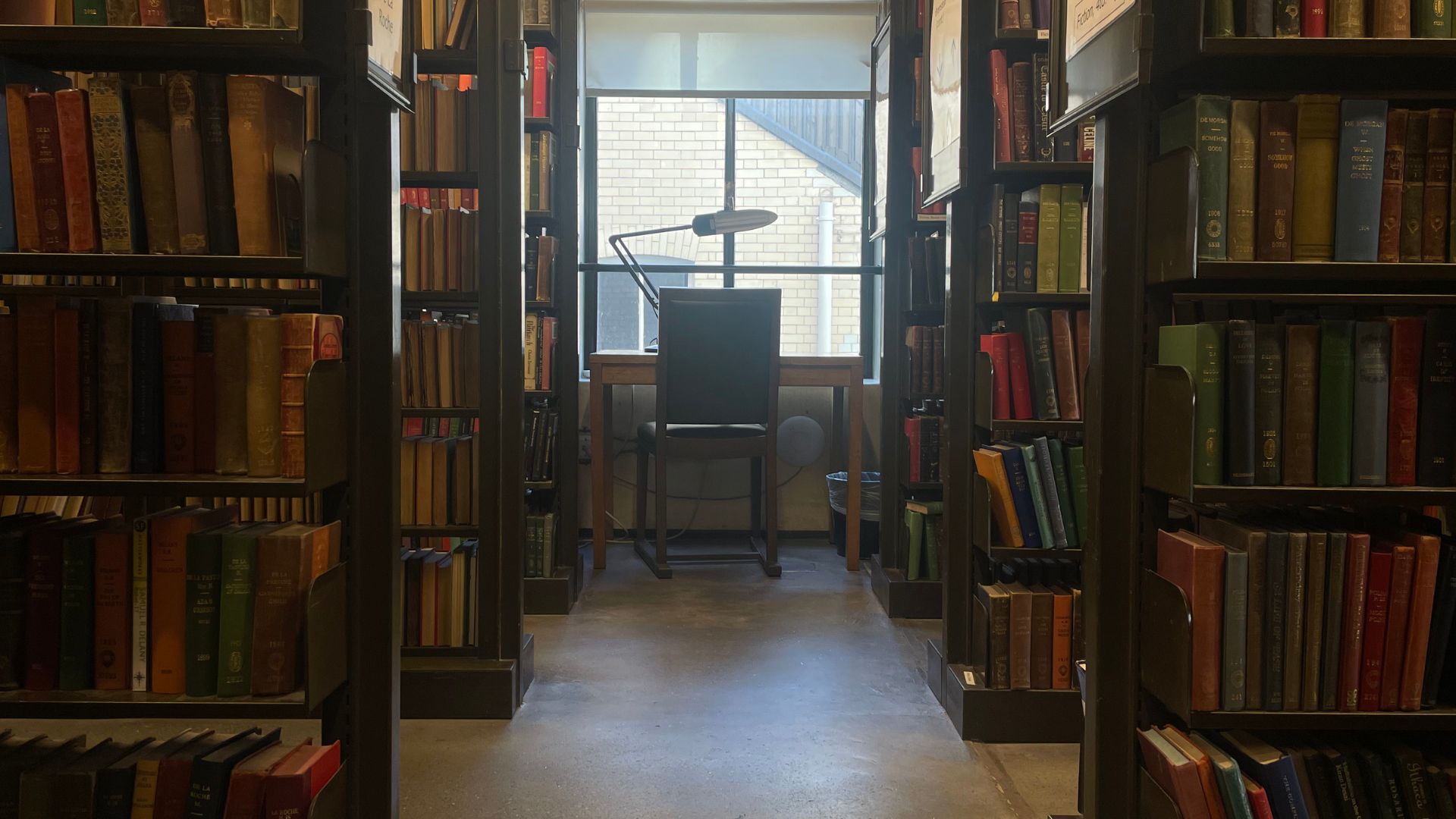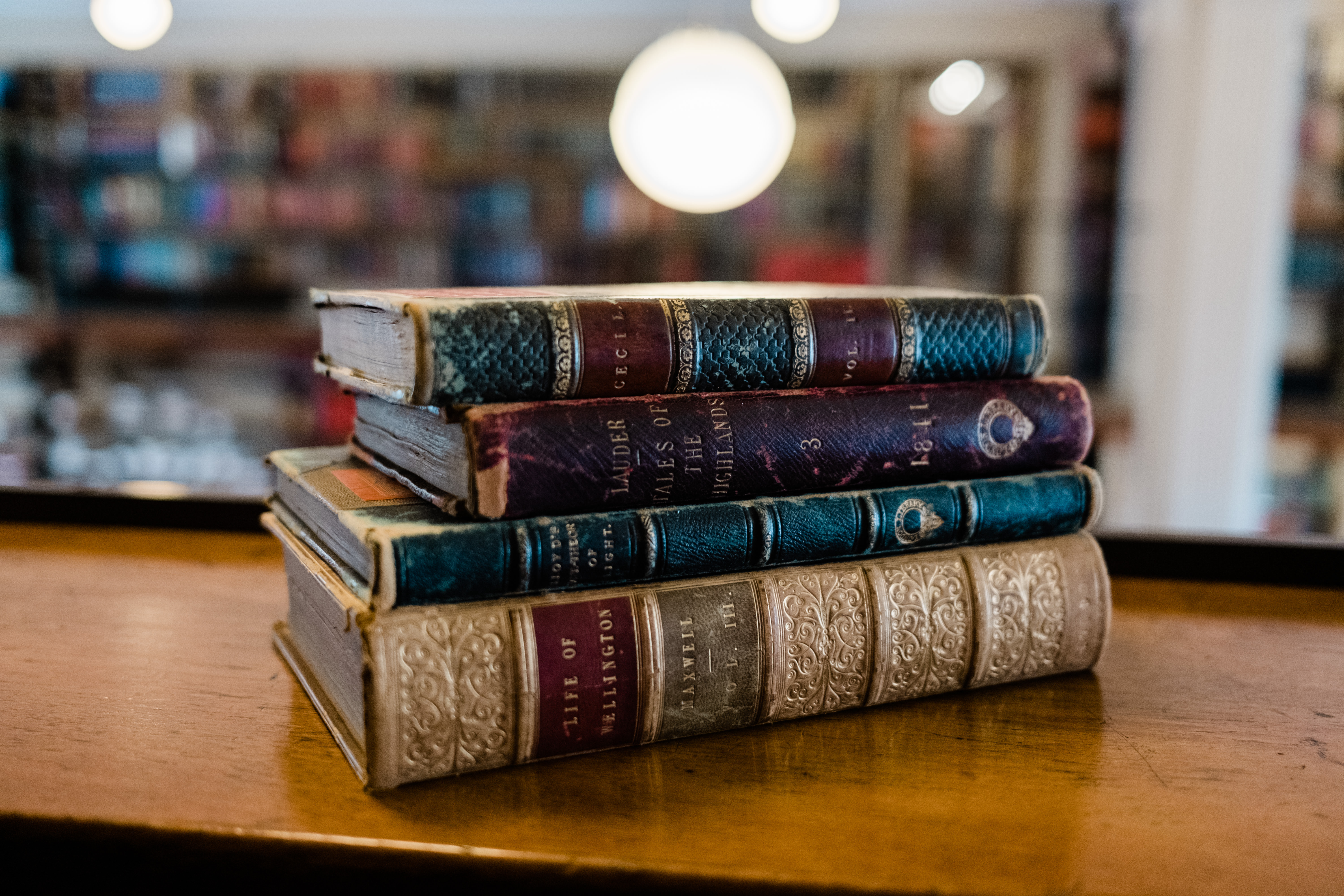John Stuart Mill is an important figure in the history of The London Library and an intriguing presence in our institutional archive. Helen O’Neil, Head of Reader Services, continues her archival sleuthing.
In researching the Library’s archival records I want to do more than simply unearth those writers and thinkers who have been members of the Library throughout its history. I want to demonstrate the significance of membership. One way of doing this is to take a single figure and delve deeply. With this in mind I have been tracking the economist, political theorist and most influential 19th century philosopher in the English language, John Stuart Mill, through the archive. Needless to say the archive has offered up a revealing picture of his engagement with, and use of the Library.
Mill’s name is not to be found in obvious places. He is absent from the lists of past Library Presidents, Trustees and Committee Members but his elegant intellectual handprint can be seen dispersed throughout the collections to a much greater degree than we had perhaps previously realised. We have always known that Mill drew up the lists for the first Political Economy collection – this is evidenced in letters from him in the archive and in the 1841 minutes of the Library Book Committee. We knew too that he donated books to the Library; there are several such donations in the Library’s Special Collections. These donations are personal and significant to him and include for instance the Commonplace Books of his father, the reformist James Mill. I mentioned in an earlier blog too, that Mill introduced his step daughter Helen Taylor to the Library in the year before he died, and she edited and translated several of his works after his death in 1873.
In addition to this Mill’s donations turn up thrillingly, (and not infrequently) on the open shelves. Sermons Preached in Boston on the Death of Abraham Lincoln; the Conspiracy Trial for the Murder of the President and The Special Report of the Anti-Slavery Conference held in Paris in 1867 are all examples of this. If you have recently been to see Daniel Day Lewis’s distilled performance as Lincoln, these donations demonstrate exactly how keenly Mill was watching America. He would follow up these donations with another in 1868 – Walt Whitman’s poetic panoramic of the American Civil War, Drum Taps.
Mill’s presence is also particularly prevalent in two other archival resources from which I have been gathering and collating data over the last month. The first is a heavily annotated working copy of the Library’s first catalogue, and the second is the Library’s early Issue Books. The annotated 1842 catalogue is an extraordinary Victorian document which reveals the level of Mill’s donations in 1841 was far greater than we had previously realised. 87 titles (numbering in excess of 240 volumes) are attributed to Mill in the annotated catalogue – only a handful of which are recorded in our much more contemporary records. In addition to this, Mill’s presence is unequivocally and impressively stamped in the Library’s early Issue Books which record the books issued during the very early years of the Library’s existence. I am half way through the Issue Books and have details of over 250 books Mill borrowed. To say he was an active regular user is an understatement. Just look at the regularity and number of books he was borrowing during 1845.
There are several themes which play out both in both Mill’s issues and his donations. The first is they are incredibly international in feel. His donations are published in Paris, Dublin, Brussels, London, Berlin, Venice, Amsterdam, Bonn, Hamburg, Calcutta, Dresden, Milan, New York, San Francisco, Boston and Edinburgh; and his loans include books about all parts of the globe including Europe, America, India, Africa, Australia, Mexico, China and New Zealand. Mill donated an enormous amount of material in 1841 in French on the French Revolution including Mary Wollstonecraft’s View of the French Revolution – and both his donations and loans are in English, French, German, Italian and Latin.
For a man caricatured in a dress for his outspokenness on the position of women, most notably after the publication of The Subjection of Women, his loans reveal that he was not only reading books about women, he was reading and donating books written by women. One of my favourites is The History of Margaret Catchpole: a Suffolk Girlpublished in 1846 by the Rev Richard Cobbold. Margret Catchpole was an extraordinary woman, who twice escaped the death sentence in the late 1790s for stealing a horse (she captured the popular imagination by riding 70 miles in 10 hours without a saddle) and for escaping prison by scaling a 22 foot wall disguised as a sailor.
To read Mill is to read work which is still relevant today. He joined the Library in 1841 two years before he published Utilitarianism, and the major works which made his name were all published during his thirty two years of Library membership. On Liberty, one of Mill’s greatest legacies has never been out of print since it was published in 1859, an indicator of its enduring importance.
On May 8th this year it will be 140 years since John Stuart Mill died. By then I hope to have wrestled out of obscurity both the books Mill donated and the books he borrowed from the Library and I will be mapping these against his published works. UCL has an internationally recognised reputation in the Digital Humanities which I am hoping will show its value here as I attempt to use the mass of Victorian digitised material sloshing round the internet to triangulate Mill’s issues, donation and published works.
It is to this unique destination point that I am racing, with as much speed as I can muster, to meet Mr Mill.
© Helen O’Neill

